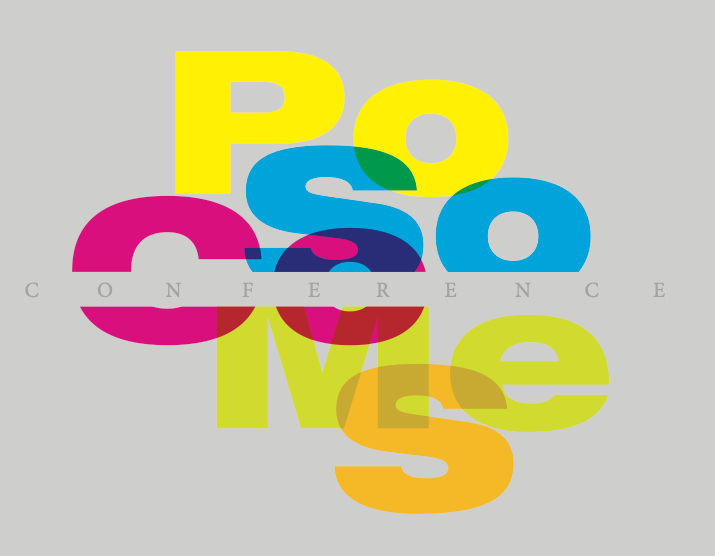From 21 September to 1 October, the first conference of the Post-Socialist and Comparative Memory Studies Working Group ('PoSoCoMeS') of the Memory Studies Association

Like most conferences in 2020, the PoSoCoMeS conference had to switch to an online format. Initially, it was to take place in Moldova, in Chișinău. The choice of the host country was not incidental: Moldova is one of the most interesting and, in its way, typical post-socialist countries in terms of the development of its collective memory. Moldova is divided into two halves, similar to many Eastern European countries. Half of Moldova's population sees itself culturally close to Romania, and the second half of the society considers Russia to be the closest cultural and political ally. There is no consensus between the two communities on any of the critical dates in Moldovan history. Even though, in the end, only the co-organizers of the conference from the Moldovan Institut of oral history (led by Alexei Tulbure) were physically in Moldova, participants had the opportunity to visit the "Virtual Moldova": two guided tours were video recorded specially for the conference participants, and the conference presentations dedicated to Moldova and Romania were marked in the program with the icons of countries' flags.
The conference was innovative in its format. Firstly, all the conference presentations were recorded by the participants in advance and posted in public or private access (depending on the participants' wishes). Thus, the audience could watch the presentations at their convenience. Almost half of the reports (as well as recordings of the plenary sessions) are still available on the group's Youtube channel. Dozens of people have viewed open access presentations; the most popular presentations have more than 150 views. Secondly, the conference ran for two weeks, four days each week. Thanks to this, there were no parallel sessions. Finally, the sessions were reduced to one-hour Zoom meetings. Each session began with a discussant presentation, and most of the time was reserved for the questions and comments from the participants. In other words, the PoSoCoMeS conference was not only the first conference of the group but also an experiment in transferring conferences into an online format.
Let us move on from technical details to substantive ones. The most striking feature of the conference was the focus on comparative research. Too often, post-socialist countries are understood only as former USSR countries or Eastern European countries. The conference organizers tried to move away from such a narrow definition of post-socialist memory. They assembled sections in which researchers from different countries and, if possible, different regions participated. For example, in one of the sessions, researchers studying Russia and Venezuela could discuss media and memory. There was practically no section at the conference in which colleagues from the same country took part. However, quite expectedly, most of the conference participants were from Russia and/or were engaged in research on Russia. In the end, this is one of the biggest post-socialist societies.
The plenary sessions were also showcased the variety of cases of the post-socialist memory. Meltem Ahıska from Boğaziçi University (Istanbul) gave the first plenary lecture on imperialism and national memory. Kulshat Medeuova from L.N. Eurasian National University Gumilyova (Astana) spoke about Kazakhstan's national memory and how the urban space is being transformed under the country's historical policy. Vitaly Chernetsky from the University of Kansas (Lawrence) argued that Odessa, with its diverse history and many communities of memory, would be an excellent testing ground for the practical application of Michael Rothberg's concept of multidirectional memory. Heidi Grunebaum from the University and the Western Cape (Cape Town) gave a lecture on the complex situation with Israel/Palestine's memory. Finally, Stefan Berger from Ruhr University (Bochum) proposed using the concept of agonistic memory to describe the future of post-communist memory in Eastern Europe.
The plenary sessions at the conference were not only academic. At one of the plenary sessions, famous writers, Maria Stepanova (In Memory of Memory) and Katya Petrovskaya (Perhaps Esther) discussed the future of the interest in memory, family memory and literature and whether the literary exploration of the past is unique for post-socialist countries. Nikolai Epplee presented his book "An Inconvenient Past", published by the NLO publishing house this fall. Also, at the conference, there were two theatrical sections ("Requiem for Europe" and a performance by the group "What to do") and the film "Soviet Garden" (2019) about the use of radiation in Moldovan agriculture during the Soviet era was screened.
The conference sessions were devoted not only to different regions and countries but also to a wide range of topics, from nostalgia to historical politics, from the memory of the war and the Holocaust to the memory of the 1990s. Boris Stepanov took part in the session on photography as a resource for memory with a report on illustrated historical journals. Alisa Maksimova participated in the session on tourism with a presentation on projects for the restoration of cultural heritage monuments in the Vologda region and the local community's attitudes to the tourism potential of such projects. Daria Khlevnyuk moderated a series of sessions on museums and memory. The sessions discussed museums in the Baltic countries, Vietnam, Moldova, Ukraine, and Russia. It is worth mentioning the discussion of the two projects, Gruia Bădescu's "Criminalization of the dictatorial past in Europe and South America in a global perspective" and Ljiljana Radonić's "Globalized museum" with Simina Bădică, the curator of the Museum of European History in Brussels. The participants touched upon the globalization of museums and new aspects of the museum canon formation, which do not necessarily come "from the West."
At the end of the conference, the PoSoCoMeS group members invited the participants to continue cooperation. The group plans to prepare sections for the future annual conference of the MSA, publish newsletters, compile bibliographies on post-socialist memory, and even start several research projects.
Alisa S. Maximova
Boris Stepanov
Daria Khlevnyuk